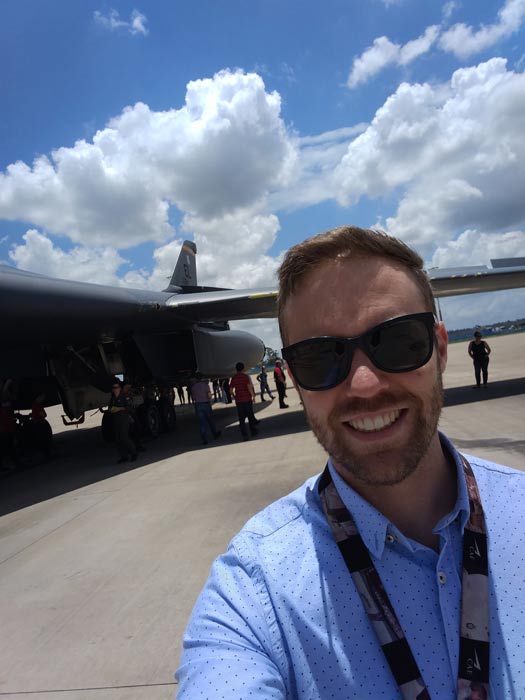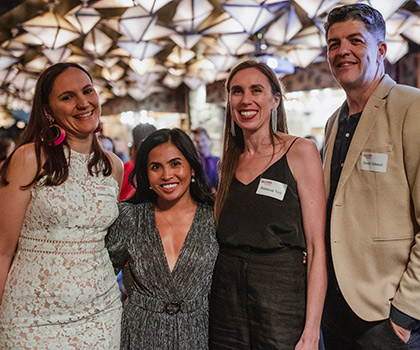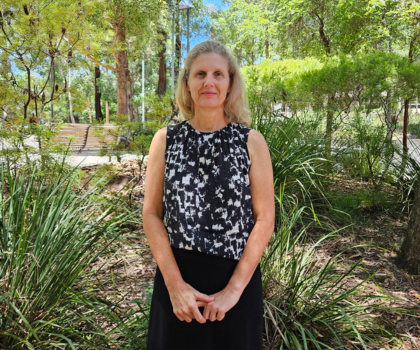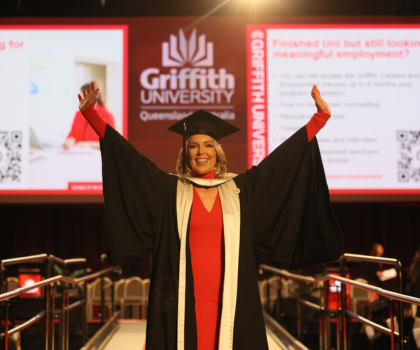
Daniel de Vries commenced his MBA studies in 2021. We, the MBA Team sat down with Daniel to talk about his professional journey in the aerospace industry and his MBA highlights to date.
You are the Head of Emerging Programs & AIC for HeliMods. What does this involve?
The title is a bit ambiguous on purpose. When I started the role the full scope of what it involved wasn’t super clear. The mandate I came in with was to build the business in the defence industry domain, applying the existing and emerging capability into the new customer domain of defence.
My day to day consists predominantly of customer relationship building, through communicating the value that the HeliMods capability can bring to big defence and aerospace players like Boeing, Lockheed Martin, and Northrop Grumman.
This consists of a lot of tours of our facility so that our customers can come to truly understand what we’re capable of delivering. Beyond that I spend significant time visiting customers for relationship cultivation and responding to all stages of the procurement process through tenders.
The areas where I bring significant value to the organisation include leveraging my substantial existing network, having worked in defence industry for 18+ years now, and bridging the gap between large corporates and small to medium enterprises like HeliMods; there are many significant differences between these business types and being able to effectively ‘translate’ between the two is a skillset that has proved very useful.
What sustainability changes would you like to see for the aerospace industry?
The use of aviation fuel is responsible for around 2.5% of global carbon emissions, so I’d really like to see a much quicker adoption of Sustainable Aviation Fuel (SAF) fuel use. Whilst there is a bigger push towards it now then there has been historically, adoption rates remain stubbornly low. Currently there are only a handful of airlines that have run operational trials of the use of SAF, and almost no militaries have commenced using the alternative fuel.
The first flight using SAF was achieved in 2008, some 14 years ago. To give you an idea of the progress we’ve reached until today, Qantas’ stated goal is “for 10 per cent of our fuel use to come from SAF by 2030 and ~60 per cent by 2050”, and Qantas have pledged to achieve net zero by 2050. In 2019 SAF accounted for just 0.1% of all jet fuel used globally. This slow uptake is disappointing when the technical challenges to achieving the switch have largely been achieved, and there is no need to for the wholesale change of infrastructure to support the change as is required for the transition to the likes of electric cars.
Beyond Sustainable Development Goal (SDG) 13 - Climate Action, I feel that the aerospace industry has a big opportunity to support SDG 5 – Gender Equality. The industry I work in is still strongly male dominant and this lack of diversity can lead to all kinds of inefficiencies and less than optimum outcomes. Over the last decade or so there have been improvements in this area, and there are many initiatives within industry around ‘women in aviation’, but to date we haven’t made the kind of progress that I feel we could have.
What book would you recommend to an MBA student/alumnus?
I’m a bit of a sucker for ‘self-help’ books or things of that type. Right now, I’m reading Hyperfocus: How to Work Less to Achieve More by Chris Bailey and it’s definitely been eye opening for me. I highly recommend it to anyone trying to optimise their time use for both productivity and creativity.
Is there an aspect of your work or life that has a positive impact on a broader community?
I’m a super strong advocate for career development and helping younger professionals achieve the career progression they aspire to. On this front I mentor people from high-tech industries to better prepare them for their careers. This work is extremely fulfilling, especially when you see those who you’ve helped reach new and greater heights. I always get a huge sense of satisfaction when a former mentee contacts me to tell me about their most recent successes.
What is your most memorable learning experience in the program to date?
The vast change in my thinking that happened after taking my first class, which was Sustainability and Systems Thinking with Professor Nick Barter. This course genuinely changed the wiring of my brain and has made me see the world in a different way ever since.
And last but certainly not least, which UN Sustainable Development Goal (SDG) are you most passionate about and why?
It’s really hard to narrow it down to just one SDG, but I am most passionate about SDG 3 - Good Health and Well-being. I am an advocate for healthy living, and I feel it’s the most important and fundamental input to a happy and successful life. If you don’t have your health, nothing else really matters. I feel that every human should have the right to good health and that right should be supported through whatever means necessary.
If you have a question for MBA student, Daniel de Vries, we encourage you to connect on LinkedIn.
You may also like

Meet "The Breakfast Club"
These students participated in PwC’s Future Solvers case competition, which took a deep dive into the big issues of the nation’s future. Find out about our students’ experience and the innovative solutions they developed.

Meet Academic, Professor Ashlea Troth
Ashlea is the Course Convenor for Leading for Sustainable People Outcomes. In this interview, Ashlea talks about what students can expect from this course, and the misconceptions surrounding emotional intelligence.

Meet MBA Alumnus, Melissa Mullen
Melissa Mullen is a Senior Advisor of Safety Systems and Training at Australia’s largest rail freight operator, Aurizon. We, the MBA Team sat down with Melissa to gain an insight into her dynamic role and how she has harnessed the skills she has acquired through her MBA studies.